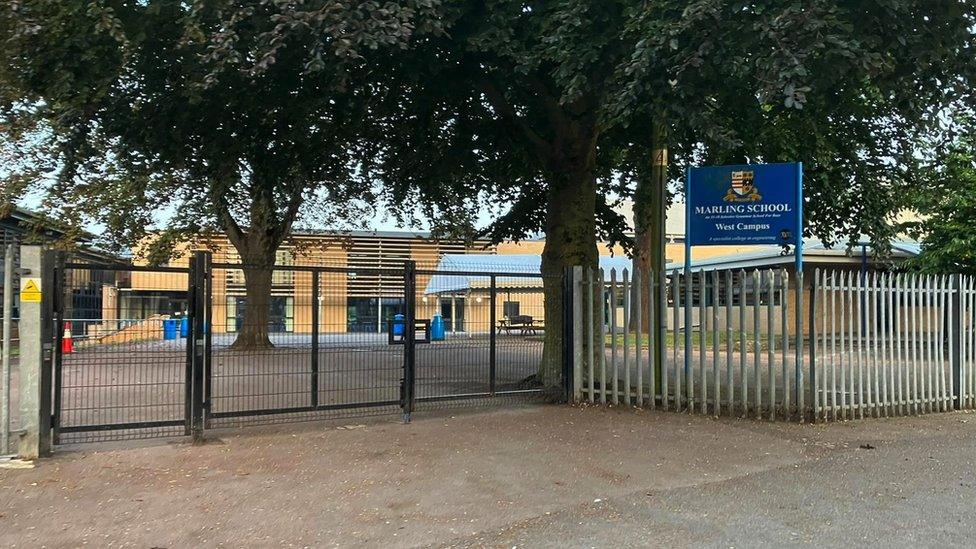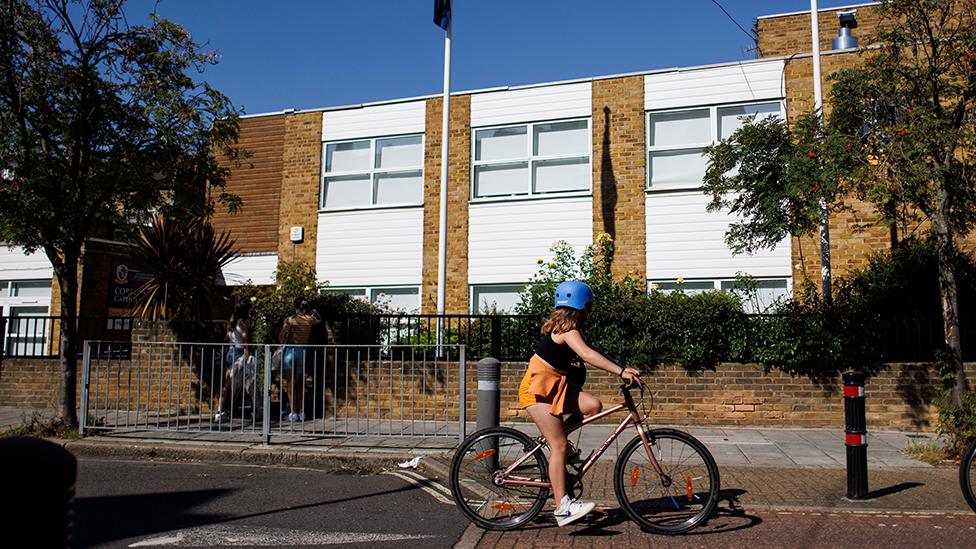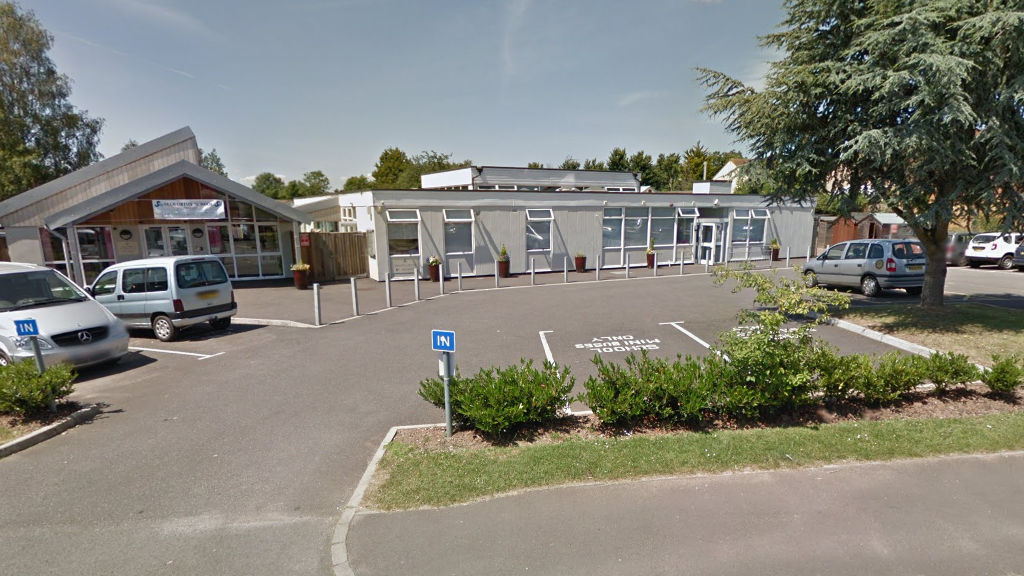Problem concrete found at Marling School in Stroud
- Published

Reinforced autoclaved aerated concrete (RAAC) has been found at Marling School in Stroud
A grammar school has been forced to close two classrooms after reinforced autoclaved aerated concrete (RAAC) was found.
The headteacher of Marling School in Stroud, Glen Balmer, notified parents the potentially unsafe concrete had been found in a survey.
Department for Education (DfE) advice states buildings where RAAC is present cannot be used.
The rest of the school will remain open as no other traces of RAAC were found.
Mr Balmer said a site survey had found that RAAC had been used in the construction of a building at the rear of the school's design technology (DT) block.
In a statement, the headteacher said: "Given the change to DfE guidance, the affected area, including two DT rooms, will be closed at the start of term to ensure everyone's safety while remedial work is planned and implemented.
"During this period, we will be working to ensure the full DT curriculum is effectively delivered.
"As the rest of the site has been confirmed RAAC free, the school will otherwise function as normal."
RAAC is a lightweight material that was used mostly in flat roofing, but also in floors and walls - was widely used in schools, colleges and other buildings from the 1950s until the mid-1990s.
It is a cheaper alternative to standard concrete, is quicker to produce and easier to install but it is less durable and has a lifespan of about 30 years.
Concerns have been raised over its safety and long-term durability at schools across England as pupils return to lessons following the summer break.
Stroud MP Siobhan Baillie said three schools in Stroud were potentially affected by RAAC.

Follow BBC West on Facebook, external, Twitter, external and Instagram, external. Send your story ideas to: bristol@bbc.co.uk , external
- Published6 September 2023

- Published13 February 2024

- Published19 September 2023

- Published4 September 2023
